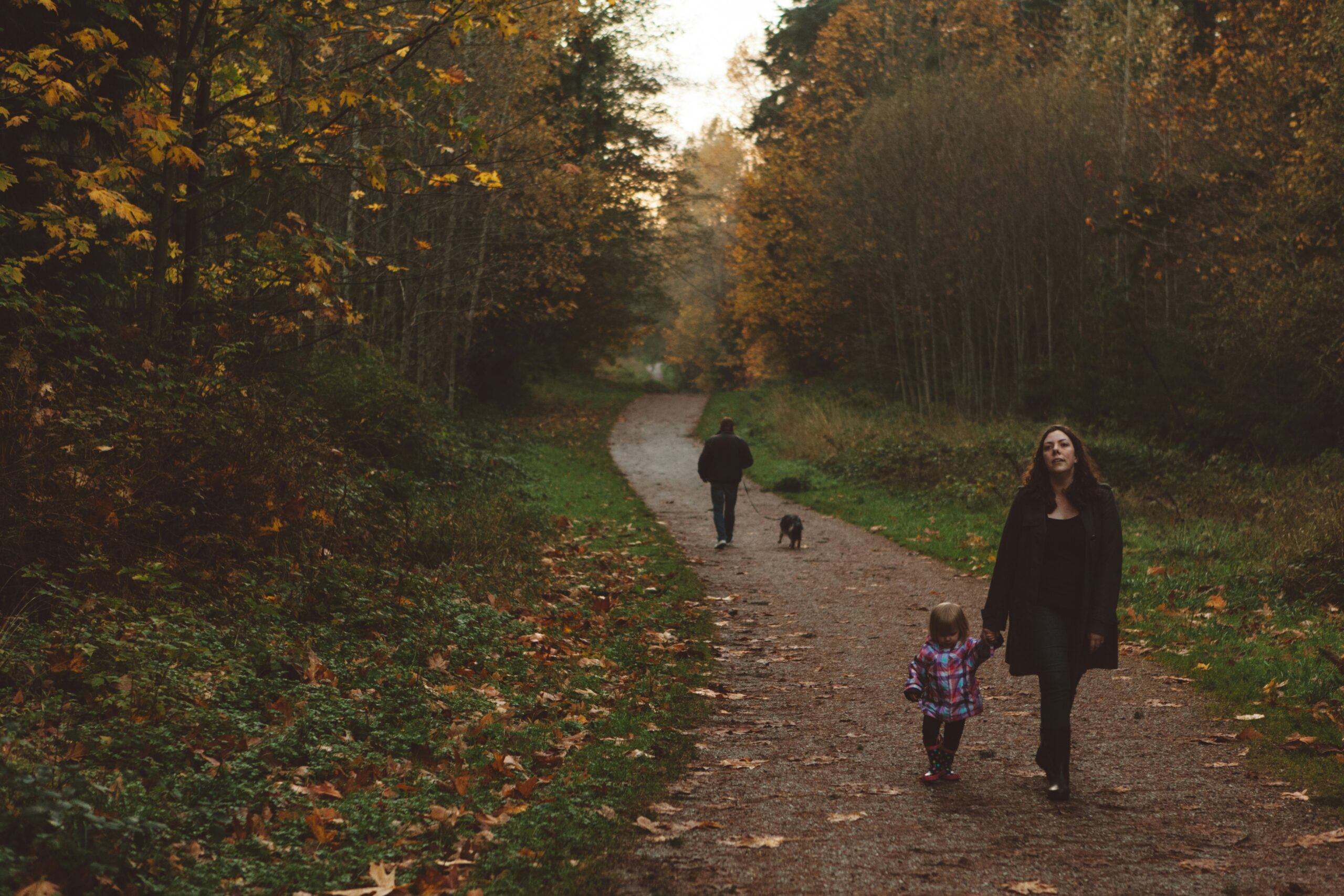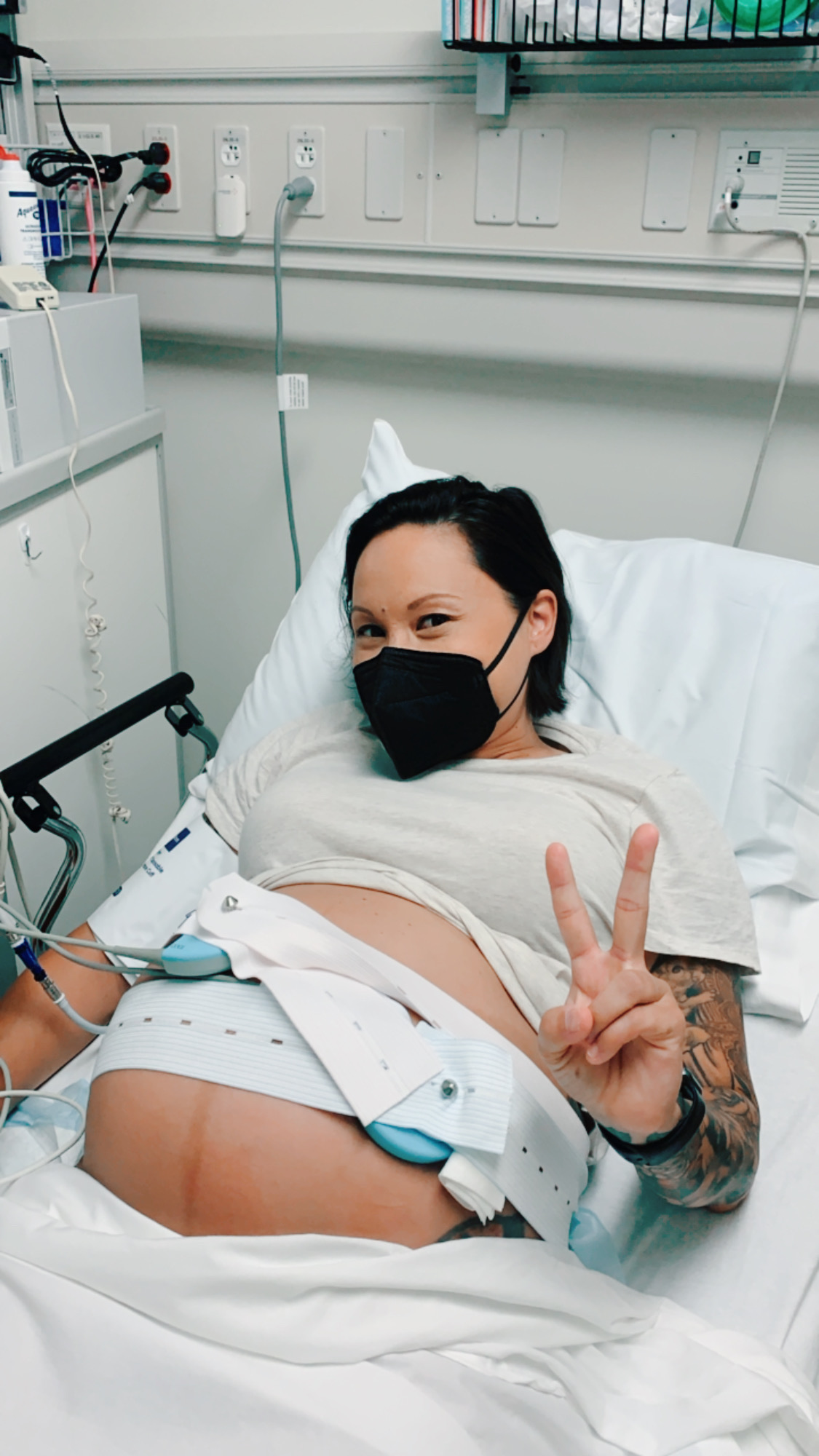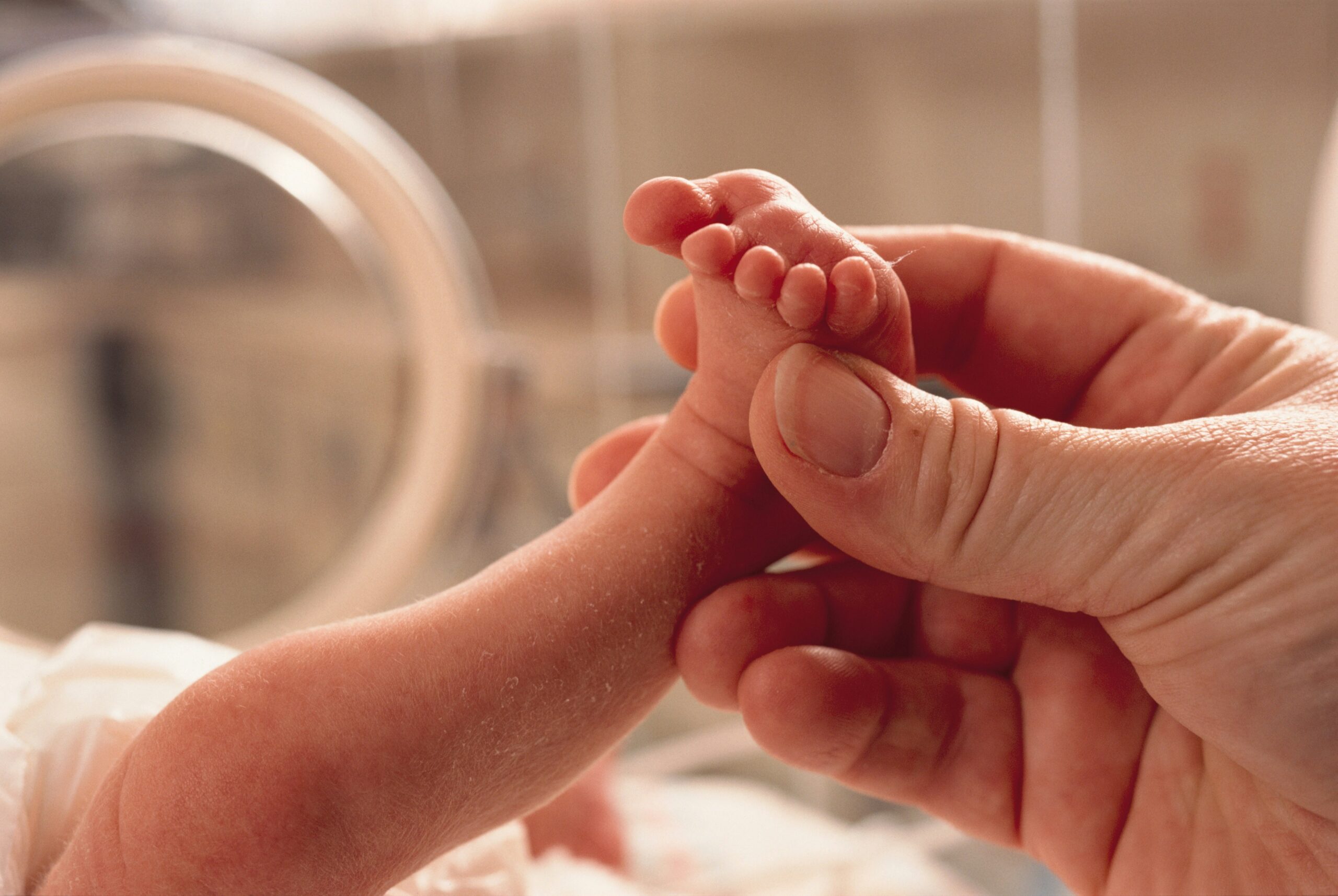On December 4th of last year, while sitting in the parking lot at my daughter’s ballet school, I received a phone call I never expected. It was the call letting me know that my dad had died hours earlier, by suicide.
What followed in the months after his death was an experience I couldn’t have imagined and yet, was oddly prepared for given the history of our relationship. I knew from a young age he struggled with the experiences of his childhood, often relayed in a “you don’t have it as bad as I did” justification for varying degrees of outbursts, in place of an apology or repair work. Throughout his life, my father suffered from both anxiety and depression and had been in and out of therapy and treatment for decades.
For the first few months after his death, especially in the beginning, I teetered on the edge of “what could have been” thinking. At the time of his death we had been estranged for nearly three years, a result of years of trauma with little acknowledgement and even less remorse.
The reality was allowing him to be a part of my life meant he would be a part of my childrens’ lives. Maintaining a relationship with a parent that struggled with boundaries and his actions and reactions always carried an element of uncertainty, which meant keeping the door open for this trauma and dysfunction to potentially impact my kids. The decision to forgo contact was simple—but not easy. My relationship with him was incredibly difficult and the impact of it continues to influence how I approach many areas of my life, including motherhood.
It is a lonely reality, to know that you’ve done all the “right” things and follow all the “rules,” walked the line—and still ended up without a relationship with your parent because they are unable or unwilling to put in the work.
My father was buried in shame. Shame from his childhood. Shame from failed relationships with his daughter and son. Shame from knowing that he was unable to redefine the outcome at the expense of others. The more I worked through the details of his choice, the lack of support for his mental health from those closest to him, and helping my own kids process his death, I realized how differently my own children are growing up.
It’s hard for me to put bubble wrap around a person who showed no forgiveness for his own children—as children—having rigid adult expectations imposed upon me as a child, viewing our relationship through the lens of anything else is a continuation of carrying the load so that he did not have to.
Our first experiences of family and parenthood come from our family in childhood, whatever that looks like. Our relationship, through trauma, my parents divorce and my place as the oldest daughter, was unlike any other in either of our lives. My father could be the life of the party, tell jokes and make everyone think he was the most charming man. He possessed the skills to be successful in business, but not in interpersonal relationships.
Behind the scenes he supplied the chaos, fear and uncertainty that was in complete opposition to the image he expected our family to portray. Image was paramount. Health (especially mental health) was low on the priority list, if considered at all.
In many ways, my upbringing mirrors the Father’s Day message: glossy and pulled together on the outside, without daring to go under the surface. My ability to keep his abusive behavior under wraps was aided by attending five different schools in five years before eventually moving to the United States during my freshman year of high school. His move out of Canada was viewed as the ultimate reset, a chance to completely rewrite his story, except for the part where I moved with him.
When someone in your life (estranged or not) passes, there are markers of time experienced as “firsts” for surviving family members. The first Christmas, New Years, his first birthday, and Father’s Day, are time stamps in the healing and grieving process. I braced for overwhelming grief that has yet to surface.
On TV, I thought I would feel differently seeing the commercials of dads playing catch with their kids or lifting a toddler high into the air after they ran towards their dad with a gummy smile. Of all the years for these to hit close, I thought the first one after his death from suicide would be it.

When I see these posts there’s a numbness to them. Not on the “I feel nothing” front—more like a “does not apply” sensation. Growing up without that experience, followed by nearly two decades of a tumultuous and disintegrating relationship, makes Father’s Day posts feel less like a stabbing pain and more like the arthritis of an old injury.
On Father’s Day I choose instead to focus on my husband’s relationship with our children as their father.
I see someone who is learning to parent differently than he was parented. Someone who did not have some of the skills or experience going into fatherhood (I don’t think anyone can have all the tools at the start) but wants to learn and improve.
Instead of excusing his reactions to experiences in his past, he will say out loud, to our kids: “I didn’t handle that in the best way, can we talk about it and figure it out.” I love him for that.
Parenting is a journey of constant course correcting. My own children are growing up in a way that’s sometimes hard for me to compare to my own experience in the same lifetime. I think about being in a relationship with someone who I am not afraid of, not afraid to leave my kids with, not afraid that my house is going to erupt into chaos if he has a tough day at work.
I think about watching my own son walk into the room, say “I need to talk to you about something you said this morning” and hearing him ask clarifying questions, or express his opinion without fear for his physical and emotional safety.

I knew my husband for a long time before we were married for much longer before having kids. Knowing the person inside and out was the base layer to the decision whether or not to even have children. The 13 years between when we met and when I gave birth to our first child was the runway I needed to work on my own stuff before having my own family.
Having a childhood like mine can be the dealbreaker for the next generations. On one hand, I knew what type of parent I didn’t want to be, and on the other I knew how much work it would take to face my own experiences so that I could show up for my kids the way that I wanted to.
I cannot change my relationship with my dad, but I can change how I develop and nurture relationships with my own children.
The examples of motherhood that I envisioned came from seeing friends interacting with their parents, meeting adults who were genuinely interested in me as my coach, teacher or counselor. From my teammate’s mom bringing an extra dinner while driving us to a travel hockey game, or being stopped in the kitchen to ask how I was doing with eye contact and pausing for as long as I needed to find an answer.
There were no fairy godmothers guiding my way to motherhood—which is where the magic of being a mom exists: filing in the cracks that people don’t see for themselves. It was a series of seemingly simple acts by mothers in my life that I had nothing to offer to— not test scores, report cards, making teams, or getting into a great school. These were people that saw me as a person and held the space for me to be 9, 10, 15, 18 years old.
When I became a mom a little over 11 years ago, I thought that it would mark the end of my journey to overcoming many things I experienced as a kid. What I found, instead, was the beginning of true healing as I’ve raised kids through all the ages (so far) I experienced trauma and what that looks like from the perspective as the parent. They say when you have children you understand how much your parents loved you, but I realized how little work my dad did to stop the cycle, while excusing his behavior on it, a thought that is incomprehensible to me now.
Bringing the next generation into the world changes you from a woman into a mother, from an individual into a “responsible for” person. Instead of a cycle, I think about it as the links in a chain. When you are at the end of the chain, as a child, wherever the chain goes, you follow. But when you have children you are a link between two and the end of the chain is dependent on your actions.
My ability to be the type of parent I want to be for my kids requires constant recalibration and learning how to take care of all the parts of myself so that I can show my kids how to do the same.
To see the look on my children’s faces when they ask me questions about things that happened when I was a kid and I share a high-level view (because they still aren’t old enough for some of the details), catches me off guard sometimes. I’m often met with looks of disbelief that so much chaos can exist in a home.
In the process of creating a home that is safe for my kids, I’ve also created a home that is safe for me—something I didn’t have as a child.
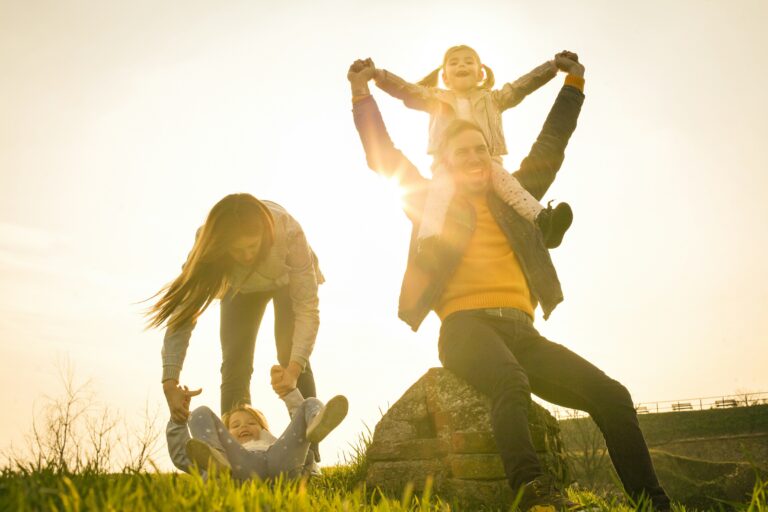
Knowing that I can be upset in my own home and my children are not afraid of me, because I am not a danger to be around when I feel emotionally dysregulated, means that real change is possible when you put the work in. Most importantly, I’m proud they feel safe to say “I didn’t like it when you….” when I inevitably mess something up, and know that their words are going to be heard, respected, and acknowledged.
I think about all the things that would have changed my childhood for the better: conversations about mental health, creating an environment where everyone feels safe and able to express a wide range of emotions, acknowledgement and conversation around screwing something up as a parent. And taking shame out of interactions, both positive and negative ones.
In my work as an occupational therapist we talk about clients having “tools in their toolbox” to work through situations. As a mom, I started with less tools than most, which is not an excuse, more like a longer shopping list to start with. I cannot change my relationship with my father but I can change how I develop relationships with my own children.
I’m sure it wasn’t his intention, but the outcome of my father’s choice has shown the extreme end of the spectrum for someone who does not create space for vulnerability in their relationships. When you do not acknowledge or attempt to repair relationships with your children—albeit this is a more severe example—they eventually grow into adults who may not allow you to be part of their life. Looking back at our relationship now, from the lens of adulthood, I understand how big of an impact mental health has on our ability to parent, to develop relationships with our children, and how to create different outcomes for them.
It’s intentional work, it’s showing up when the absolute last thing I want to do is drag myself over the coals of my own trauma, but I do so that one day my kids won’t have to do the same thing. I talk openly (and age-appropriately) about my own mental health with my children. It’s not only going to therapy, holding myself accountable when I fall short.
For me, grieving and healing on Father’s Day looks different than it might for others. My father’s decision to end his life in a horrific and violent way is complicated, but that was his decision. The opportunity for reconciliation or resolution ended abruptly when he died a few weeks before Christmas last year.
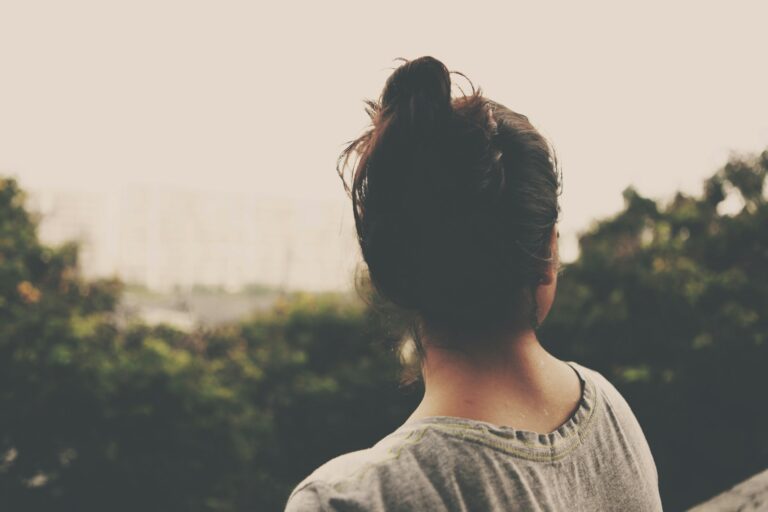
There’s still so much stigma around suicide and talking openly about it, to the benefit of no one. When someone dies in this way, there’s a shroud of shame that can haunt survivors, especially children. People don’t know what to say—so they avoid talking about it. I decided when he died, when I spoke at his memorial, and when I told my children he had taken his own life, that allowing any form of shame to permeate that was a disservice to those that could benefit from honest mental health conversations.
I miss who he was when no one was around, when he was as far from the limelight as possible. I don’t miss the bravado or forward facing part of him—that was all an act.
I miss the rare moments when he opened up about the work that he was doing in therapy and the ways he connected the dots from his childhood and how that shaped him. I miss the times when he was taking therapy seriously and digging through old trauma and showing up authentically and vulnerably, sitting on my living room couch. I miss opening the book he got me every Christmas because he remembered hearing me say I was interested in the author or the topic they were writing about.
My journey to and through motherhood is worlds away from my own experiences growing up. Instead of using my past to guide my future, it’s been a decades long reparenting effort to show up differently for my kids.
I want them to know that they are loved, worthy of the time and energy it takes to be a good parent, seen for exactly who they are and know that they are incredibly good people. I cannot change the relationship I had with my dad, but I was never meant to be the one to change it, I was the child. At the end of my life, I don’t want my children to be left with a list of things they liked about their childhood that could fit on a small post-it note. I want it to take up a whole book.
Author
-
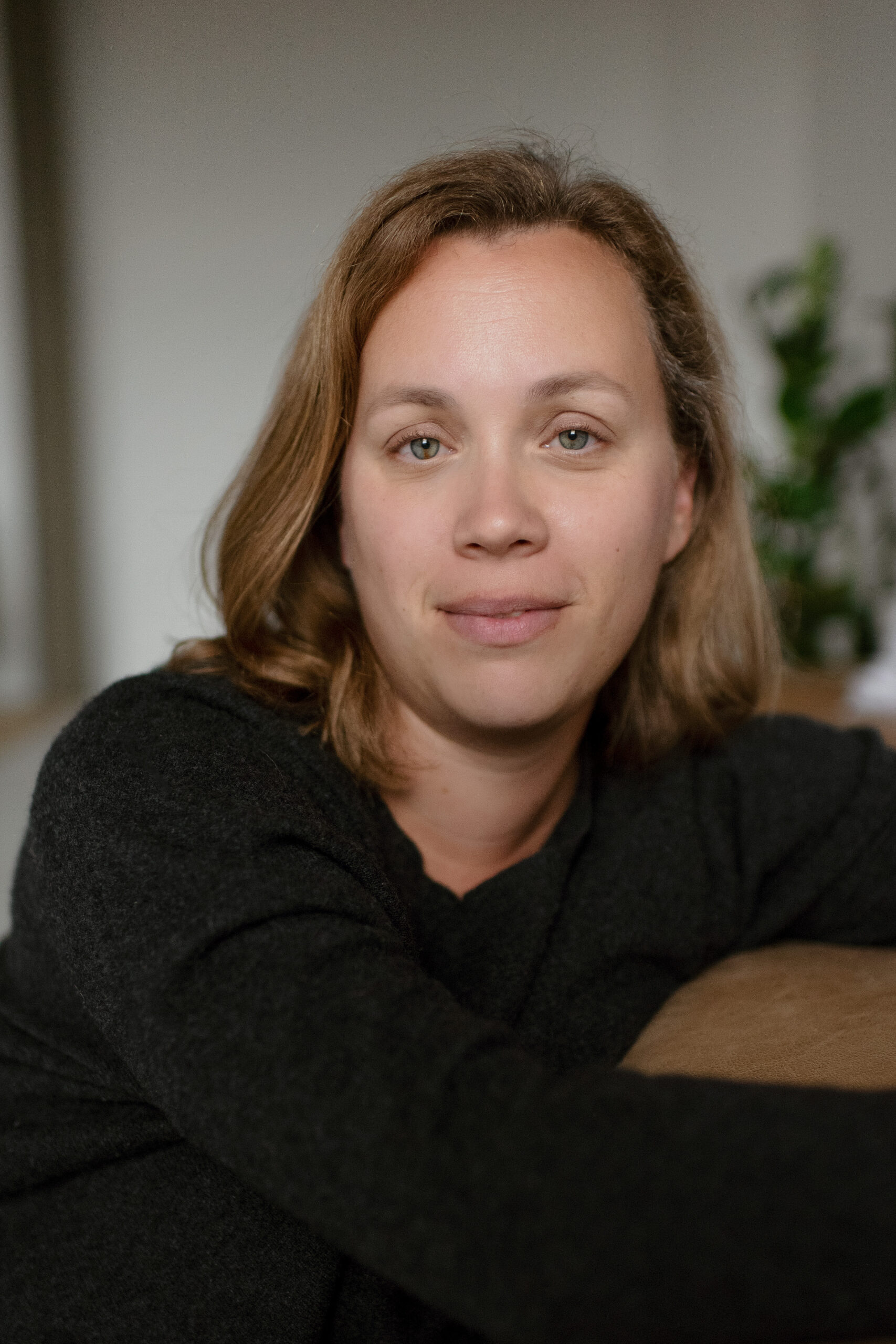
Dr. Ashley Blackington (OTD, OTR/L) is the Founder & CEO of Dovetail®- a B2B CareTech company helping families streamline the logistics of care. Dovetail® was inspired by her time as a clinician and seeing the impact on family caregivers trying to navigate care without tools to simplify the process. She is also the host of the AND/BOTH podcast (available wherever you get your podcasts), a show featuring conversations with moms honoring themselves as individuals alongside motherhood. She is a mom of four kids, lover of hot coffee, all varieties of books and a good driving soundtrack. You can read more of her work on herSubstack. Her forthcoming book examines the intersection of generational trauma, feminism, and personal accountability.
View all posts

